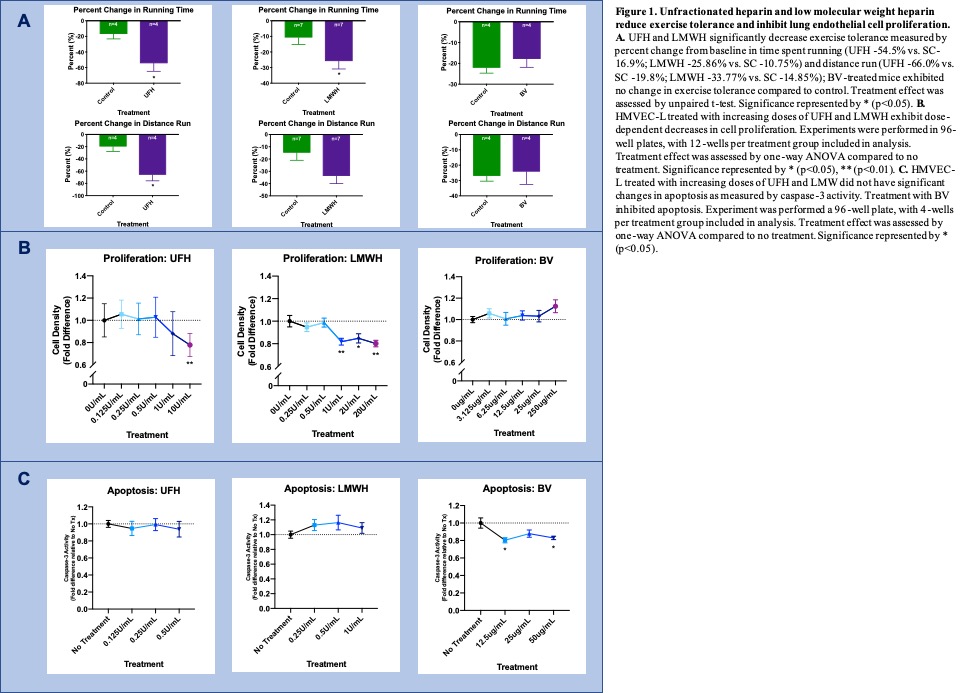The effect of anticoagulation on pulmonary function and endothelial cell survival
*Lumeng J Yu, *Victoria H Ko, *Amy Pan, *Jordan D Secor, *Duy T Dao, *Lorenzo Anez-Bustillos, Mark Puder
Boston Children's Hospital, Boston, MA
Objective: Neonates with congenital diaphragmatic hernia (CDH) suffer from pulmonary hypoplasia (PH) and may require extracorporeal membrane oxygenation (ECMO) and systemic anticoagulation. Expeditious pulmonary growth on ECMO is required to reduce mortality, which approaches 50%. Our lab demonstrated that anticoagulation with unfractionated heparin (UFH), but not bivalirudin (BV), impairs compensatory lung growth (CLG) in a murine left-pneumonectomy model of PH. We now investigate the functional effects and mechanisms of anticoagulation on CLG. Design: Mice underwent pneumonectomy and randomized treatment with UFH, low molecular weight heparin (LMWH), BV, or saline control (SC). Lung endothelial cells were assessed for proliferation and apoptosis after treatment with UFH, LMWH, or BV. Setting: Laboratory Patients: Eight-week-old mice; Human lung endothelial cells (HMVEC-L) Interventions: Mice: Pneumonectomy; anticoagulation; HMVEC-L: Anticoagulation Main Outcome Measures: Treadmill exercise tolerance: Percent change in time and distance run post- versus pre-operatively; Proliferation and apoptosis: Cell density or caspase-3 activity Results: UFH and LMWH decreased mouse exercise tolerance compared to control, while BV had no detrimental effects (Figure1A). UFH and LMWH induced dose-dependent decreases in cell proliferation, while BV stimulated cell proliferation compared to no treatment (Figure1B). BV decreased apoptosis, while UFH and LMWH had no effect (Figure1C). Conclusions: UFH and LMWH reduce exercise tolerance in a model of PH, while BV does not. UFH and LMWH inhibit lung endothelial proliferation, while BV may promote survival. Heparins which may pulmonary development in neonates with CDH on ECMO. Evaluating use of alternative anticoagulants such as bivalirudin is imperative for patients with this often-fatal disease. 
Back to 2020 Abstracts
